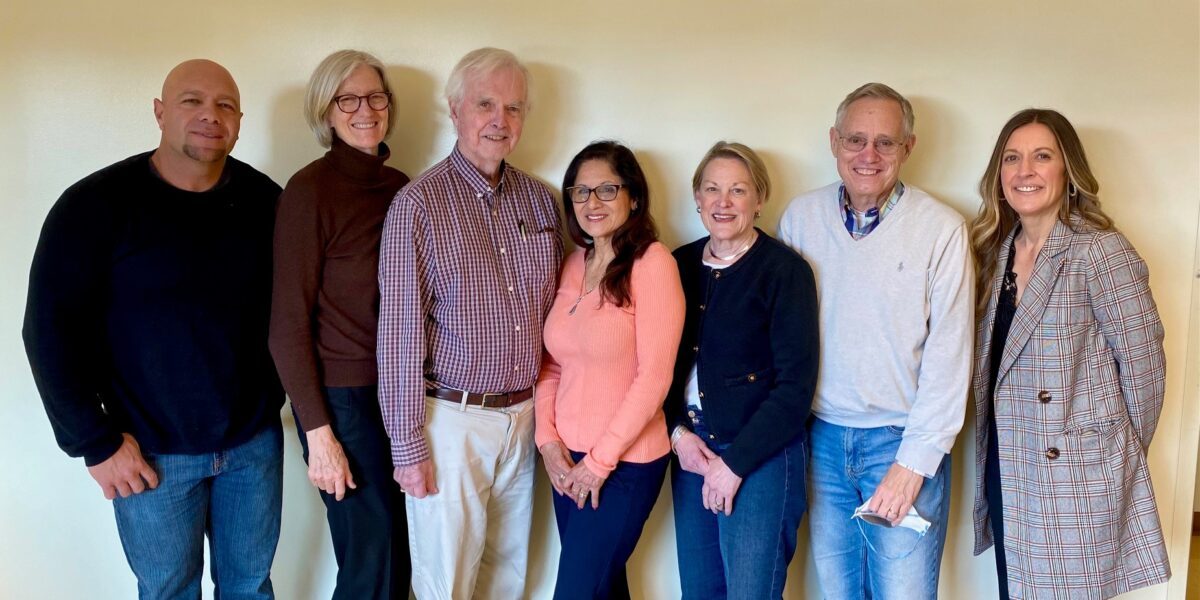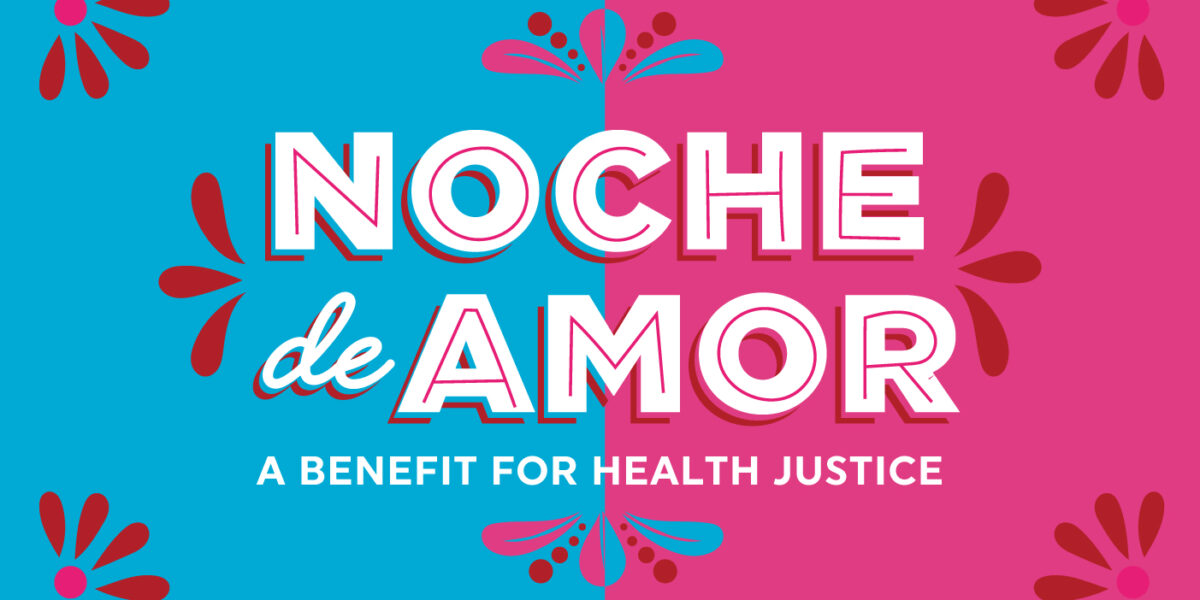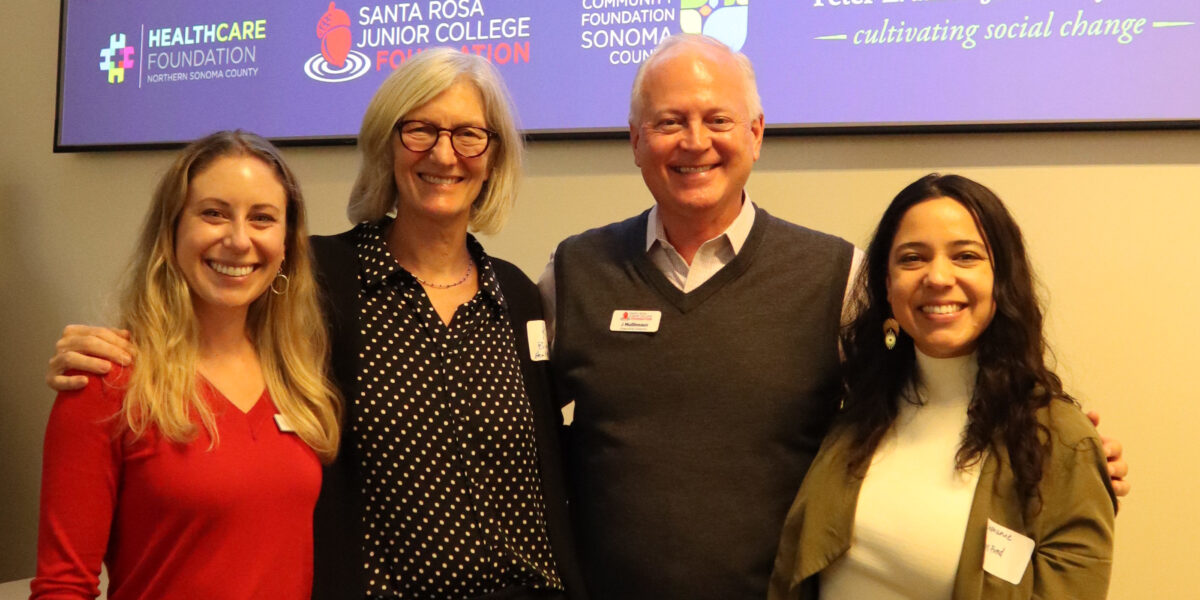
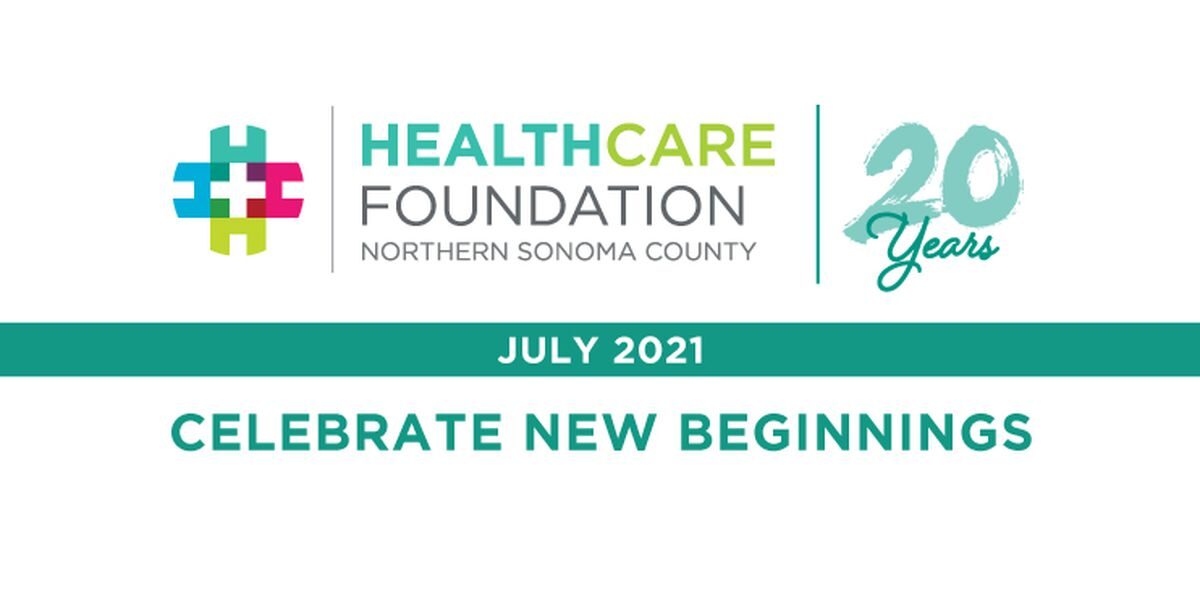
Celebrate New Beginnings
This month, we highlight Mental Health Talent Pipeline grantee Eloisa Masror, and board vice chair Peter McAweeney shares his thoughts on strategic planning in times of crisis.
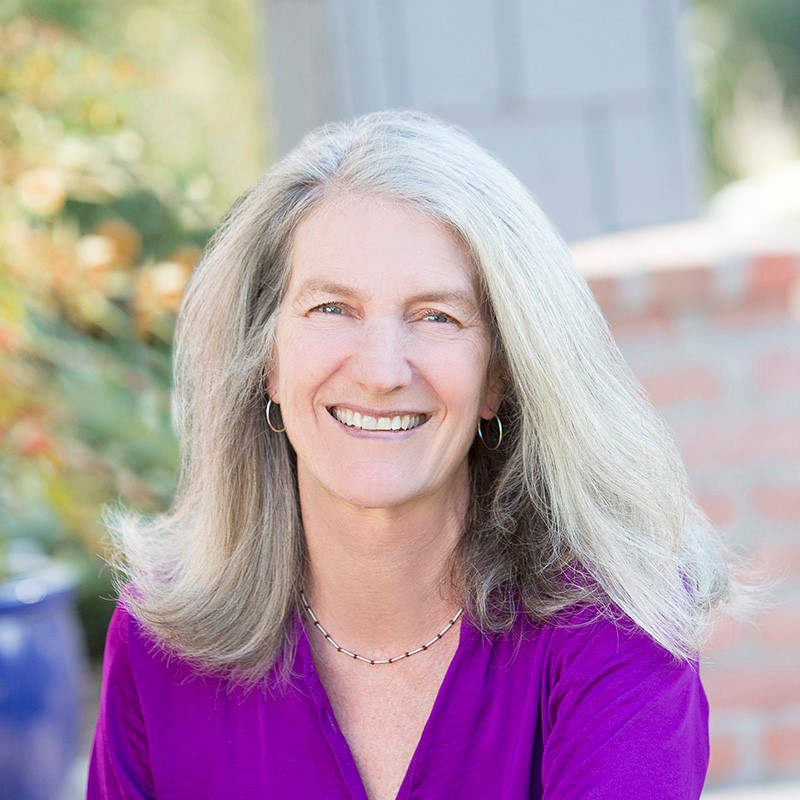
Dear Friends,
This month, I join you in collectively celebrating in-person gatherings with friends, family, neighbors—and even strangers. It’s novel and marvelous to be shaking hands and hugging once more. We cannot wait to gather together at our 20th Anniversary gala, CELEBRATE OUR FUTURE, where the Josh Jones Latin Jazz Ensemble will help get us moving and grooving together. Read more about Josh and his outstanding band below.
We in Sonoma County are indeed fortunate with our 76%-and-rising vaccination rate for residents ages 12 and older. While we count our blessings, we hold compassion in our hearts for those who live in places where the threat of Covid infections, hospitalizations and deaths remains high. Even here, we must remain vigilant: we are seeing a spike this month in Sonoma County among unvaccinated residents. The Healthcare Foundation, along with our partner organizations across the County, continues to reach out to unvaccinated adults, and to prepare for when the vaccine becomes available to our vulnerable children. Our work battling Covid is not done, but progress continues and the outlook is hopeful.
As we celebrate many new beginnings, among them is the Healthcare Foundation’s new strategic plan to address health inequity in our region. We are listening to community members and aligning and partnering with local organizations in this effort. One of the biggest lessons from the pandemic is that we are all connected and much stronger when we act together. Through collaboration with like-minded partners, including donors, healthcare providers and grassroots organizations, we increase our collective impact on the health and well-being of our community. For more information about the Healthcare Foundation’s strategic planning process, please see the excellent article below by Vice Chair Peter McAweeney.
Another lesson the pandemic brought home is that physical and mental health are deeply intertwined. Our strategies to improve health must address the whole person. For an inspiring perspective, please read our spotlight story below about Eloísa Ruano González.
Finally, a huge thank you to everyone who has stepped forward to sponsor CELEBRATE OUR FUTURE, as well as to our donors, Healthcare Heroes and partnering nonprofits. We cannot do this work without the support and collaboration of the myriad who share our deep commitment to community health.
With appreciation for all you do,

Kim Bender
Executive Director
Spotlight: Mental Health Talent Grantee Eloísa Masror
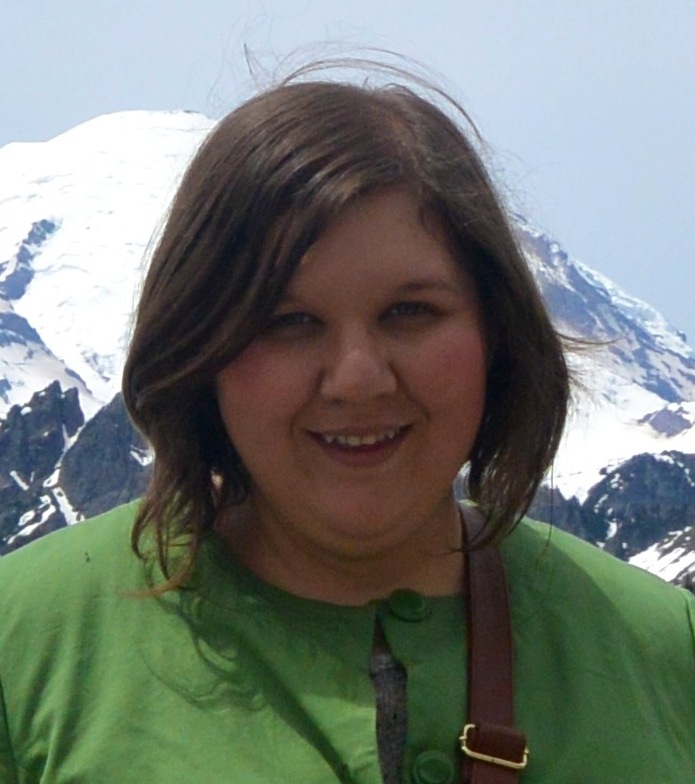
Eloísa Masror knows firsthand the strength and resilience of her Latinx community. She also knows the challenges facing immigrants and their families, and the toll these can take on the wellbeing of an individual, a family and a community.
“My parents were both immigrants,” shares Eloísa. “I grew up in Southern California in a predominantly low-income neighborhood of mostly immigrants, a mix of Latino and Asian communities. I understand the constant stressors immigrants are living with on a day-to-day basis, and have experienced that on a personal level, too.”
Over 15 years as a reporter in Santa Rosa, Eloísa heard and shared many stories from the Latinx community. Gradually, she yearned to do more to address the need she saw around her, especially for culturally competent mental health services.
“When I first moved here, I was looking for a bilingual therapist, someone who could relate to me on a different level, and I couldn’t find one,” she says. “There’s a need there, and it has only gotten greater because we had the fires and now the pandemic. Now you have this compounded effect on people emotionally.”
In 2017, Eloísa applied for a graduate degree in counseling psychology at the University of San Francisco (USF). She was accepted but, unfortunately, found the cost prohibitive.
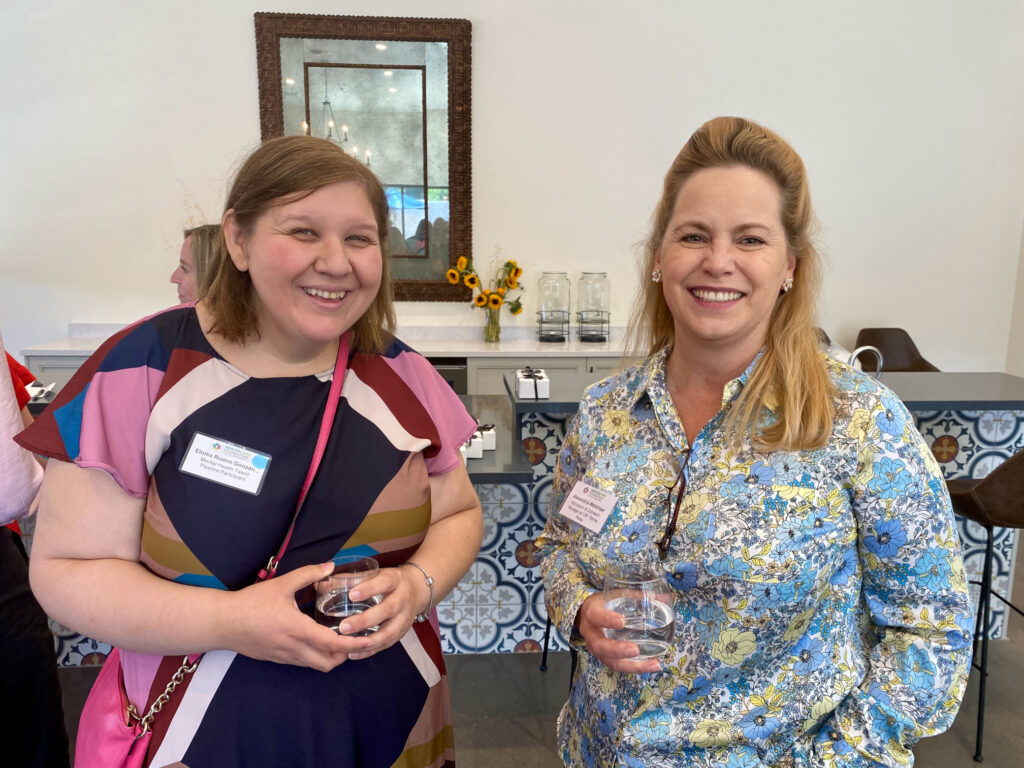
“I ended up turning it down,” she explains. “Financially, I just couldn’t make it work. I’d just had a baby. So, I went back to reporting—which I enjoyed doing; I was just looking for something else to make a greater impact.”
That year, Eloísa covered the 2017 wildfires for Santa Rosa’s Press Democrat as part of a team whose collective efforts earned the paper a Pulitzer Prize.
“I was hanging out in the shelters and figuring out what was happening to people in those first days of the fires,” she recalls, “just seeing the level of fear. People were afraid because they saw the National Guard parked out in front of shelters. Initially the information was not being given in Spanish, so that created another level of confusion. For a lot of families, it was a very scary, traumatic experience.”
Meanwhile, the resources designed and mobilized for such families weren’t getting to them.
“The more I reported on these issues,” recalls Eloísa, “the more I realized that the county had implemented some services and support groups, and nobody would know about them.”
The experience only reinforced her desire to directly serve the people in her community.
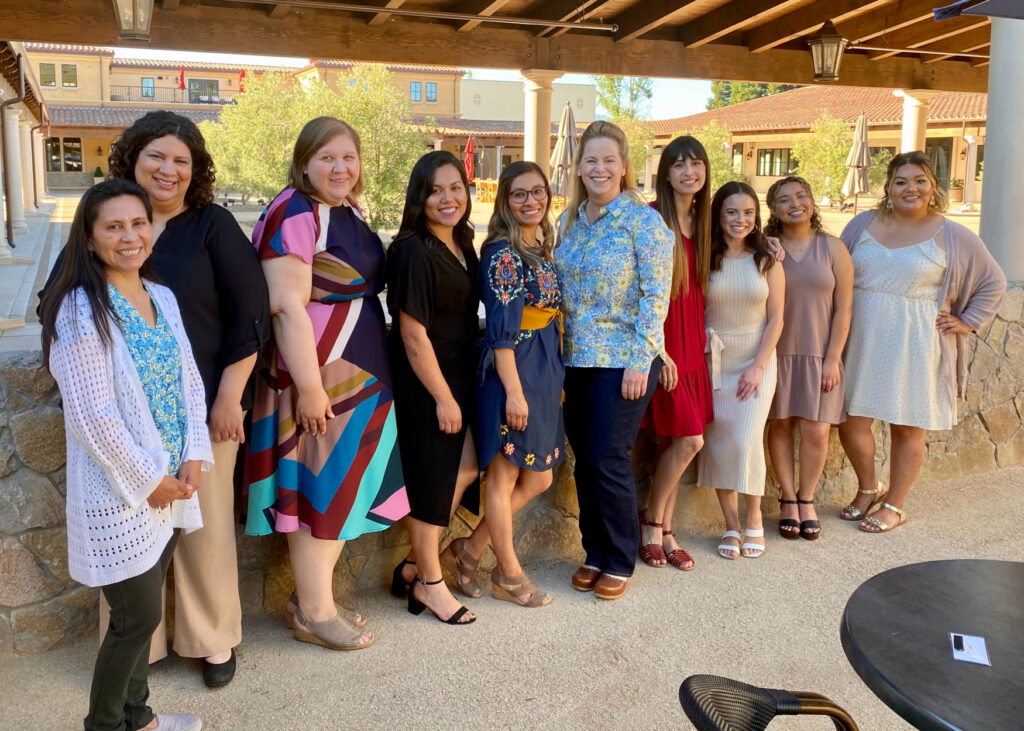
“I wanted to help people heal. Just listening to someone’s story and reflecting it back to them—that is often empowering and healing. But I wanted to also provide the services to help them take charge of their own healing, including those intergenerational issues linked to traumas that get passed down from generation to generation.”
At last, she was able to enroll in the USF program, now with the support of a scholarship from the Healthcare Foundation’s Mental Health Talent Pipeline Project. Today, Eloísa is completing her master’s in Marriage and Family Therapy (MFT). In August, she’ll start a traineeship with YWCA Sonoma County helping survivors of domestic and intimate partner violence.
“It’s been life changing,” says Eloísa of her new beginnings as a therapist. “I hope that I can be a resource to families here.”
“I also want to encourage others,” she adds. “I am the first person in my family to go to college. It’s scary to be the first one. It takes a lot of courage. I’m hoping I can inspire and be a resource for people wanting to pursue this work and trying to figure out how to do it.”
As far as new beginnings go, Eloisa and her Mental Health Talent Pipeline colleagues are already inspiring others to pursue the mental health field: this year, more bilingual, bicultural students than ever applied to the USF Santa Rosa MFT program.
Strategic Planning in Times of Crisis

A Perspective from Board of Directors Vice Chair Peter McAweeney
When I first joined the board of the Healthcare Foundation, we had just completed a strategic planning process that guided the organization on a new path focused on three vital areas: health access, mental health, and early childhood development. Just as we started implementing this plan, the 2017 wildfire hit. While we maintained our strategic focus, the traumatic impact of the wildfire demanded we deepen our commitment to mental health. Fast forward to 2020, and it was time for the Foundation to engage in a new strategic planning process to further explore its future and new beginnings in serving the health of northern Sonoma County.
And then, the COVID pandemic hit.
While wildfires and pandemics affect entire communities, the enduring impact of these disasters brutally exposes the social, economic and health inequities that plague our society. On the other hand, disasters can also reveal resilience, uncover opportunities, mobilize empathy, and inspire collective action.
Embarking on a strategic planning process in the midst of the pandemic—with keen awareness that the drought might trigger another devastating wildfire season—presents unique challenges, but I see it more as an opportunity. Through the trials of the past four years, the Foundation has evolved into a more strategic and responsive organization, supporting the health ecosystem of our region as a critical funder, partner and leader guided by the principles of community, compassion and equity.
In our strategic planning process, we have paid particular attention to understanding equity, recognizing the reality that for individuals to achieve equal outcomes, they need access to resources and opportunities specific to their unique needs and challenges. We have listened alike to the lived experience of community members as well as to the nation’s leading health organizations—from the CDC and NIH to the New England Journal of Medicine—which are all elevating how structural racism is a root cause of the profound health inequities in our country, and indeed in our community here in Sonoma County.
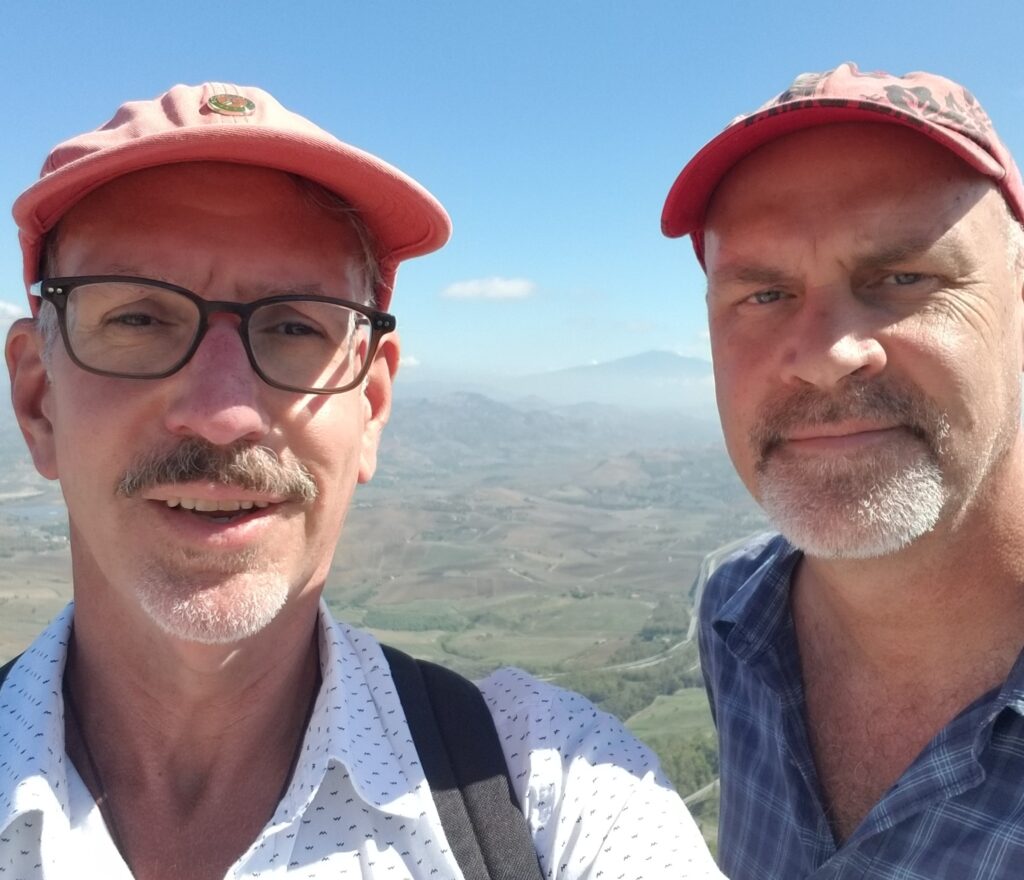
Applying a deeper understanding of equity—and the structural barriers to achieving it—to the Foundation’s planning framework has led us to think more expansively and creatively about our work. We have been guided in this process by community listening sessions with local leaders, health advocates and the people who rely on the services provided by our grantees.
We will continue to focus on the issues of health access and mental health, and will have a lens on the well-being of families with young children, but our strategy is evolving to a more integrated approach. Challenges of healthcare access, mental health, and family well-being are not neatly siloed, so why should our solutions be? The social determinants of health and adverse childhood experiences can impact an individual’s health for a lifetime. Interventions in early life can change outcomes for the child, their family, and their entire community.
The board’s yearlong strategic planning process will be concluding in the upcoming months. We will be excited to share with you then our detailed vision for the Foundation’s next chapter. We anticipate that you will hear more about our deeper, more integrated “whole family” focus that will shape our work in many different ways, including:
- Expanded investment in Community Health Workers and Promotores—community members who can take on many roles, including care coordination, case management, systems navigation, and even something as simple as transportation.
- Continued strengthening and evolving of our Mental Health Talent Pipeline, which works to train and place bilingual/bicultural mental health providers in professional settings that will enhance equitable access to mental health services.
- Continuing to serve as a convener, to bring together community leaders and stakeholders for critical dialogue and design solutions.
- And exploring ways to balance downstream solutions to address critical health needs with upstream solutions to address more structural barriers to health equity.
While we all hope to maintain our collective progress against the COVID pandemic and to dodge another wildfire season, our community will undoubtedly face future crises. However, with a refreshed, integrated strategy that mobilizes our community’s empathy and remains committed to equity, the Healthcare Foundation will be well-positioned to advance the health and well-being of our most vulnerable community members and, in turn, better enable all of us to thrive together.
With deep gratitude for your support,

Peter McAweeney
Vice Chair, Board of Directors
Local Legend Josh Jones and Band are On-Board for a Gala to Remember

Like live music and dancing? You’re gonna love your time at the Healthcare Foundation’s upcoming “Celebrate our Future” gala on August 28.
Our outstanding musical host for the night, the Josh Jones Latin Jazz Ensemble, is an amalgamation of some of the best jazz and salsa players in the entire Bay Area. We first encountered them at the Healdsburg Jazz Festival, where they brought the house down last month.
Leading the band is none other than Josh Jones himself, a percussionist with a 40-year pedigree.The 59-year-old Bay Area native said he’s excited and delighted to be performing on behalf of our organization for such an important cause.
“Healthcare in this country is everything—it’s one of the most important issues of our time,” he said in an exclusive interview last week.
“There’s a huge disparity between the haves and the have-nots, and anything we can do to close that gap and make access to healthcare more equitable is a step in the right direction as far as I’m concerned.”
Jones started playing music as a teenager in the late 1970s and early 1980s. Back then, fresh out of Berkeley High School, Jones was a regular participant in drum circles at Sproul Plaza in Berkeley. He learned how to play Afro-Cuban percussion from some of the Cuban immigrants who played there. Essentially, this scene was the epicenter of the local world music movement at the time.
Jones eventually met Peter Apfelbaum, a gifted horn player and multi-instrumentalist, a fellow Berkeley High alum, and a force in the evolution of the Bay Area jazz scene The two began playing together on a regular basis. Apfelbaum founded the Hieroglyphics Ensemble and Jones played the drums. While in this band he befriended Don Cherry, the famous trumpeter. Cherry would go on to become a central figure in Jones’ career and life.
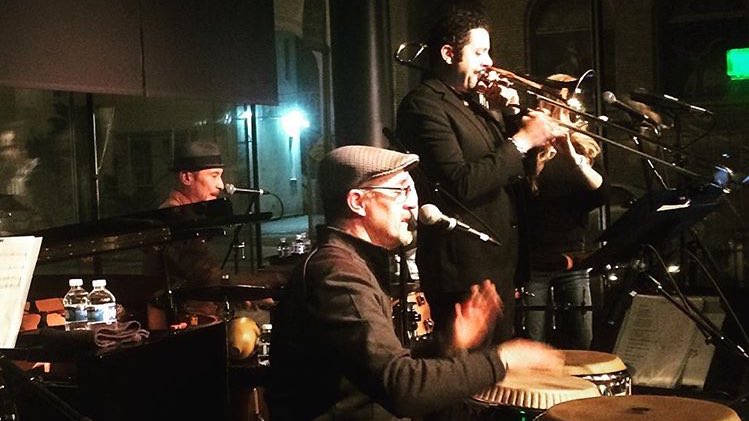
Together, Jones, Cherry, Apfelbaum and bassist Bo Freeman formed a third band, Multikulti. This quartet was the first band with which Jones toured. Later, Jones toured with another of Cherry’s bands, subbing for legendary drummer Ed Blackwell.
Throughout the 1980s, Jones shared stages with many of the jazz greats, including the likes of horn maestro Omar Sosa, saxophonist Steve Coleman, and world-music pioneer OJ Ekemode. Jones played in Cuba, Africa, and all over North America. Every time he performed, he says, his skill-set and confidence grew.
By the 1990s, Jones was playing local clubs with icons such as guitarist Charlie Hunter, saxophonist Joshua Redman and others. Around this time he also connected with Marcus Shelby and the Healdsburg Jazz Festival, thus marking his introduction to the jazz scene here in the northern reaches of Wine Country.
“I’ve been lucky to play with many of the all-time greats,” Jones said, looking back. “We have quite the variety here in the Bay.”
Jones, it’s clear, is himself no stranger to new beginnings. He formed his current eight-member band toward the end of the 1990s. Players have come and gone over the years, but the band always features some of the region’s best jazz and Cuban musicians and maintains a loyal group of fans that follows them everywhere they play. Before the COVID-19 pandemic, one of the band’s regular gigs was San Francisco’s Pier 23.
And when Jones isn’t playing music or advocating on behalf of the jazz community, he’s teaching, passing along his knowledge to new generations. He’s worked with the jazz band at his alma mater, Berkeley High, and has led the jazz band at the Oakland School for the Arts, as well. He also teaches at local music camps.
No matter how you look at it, Josh Jones is a local treasure. We’re excited to have him join the family in our effort to provide equitable healthcare access for all.
While Jones declined to share specific songs on the gala set list, he suggested that audience members “keep an eye on all the players” to see some insanely talented solo work. He added, with a smile, that people are always welcome to dance.
“There’s something about this music,” he says, “you just have to get up and move.”

VIP Pre-Reception 6:00 – 7:00 PM
20th Anniversary Gala 7:00 – 10:00 PM
Become an event volunteer, in support of community health, for our Celebrate Our Future Gala on August 28, 2021.
Click HERE for volunteer opportunities and info.

Related News + Stories
Invest in Our Community
Your support is vital to our collective vision of eliminating health inequities in northern Sonoma County.
Donate
